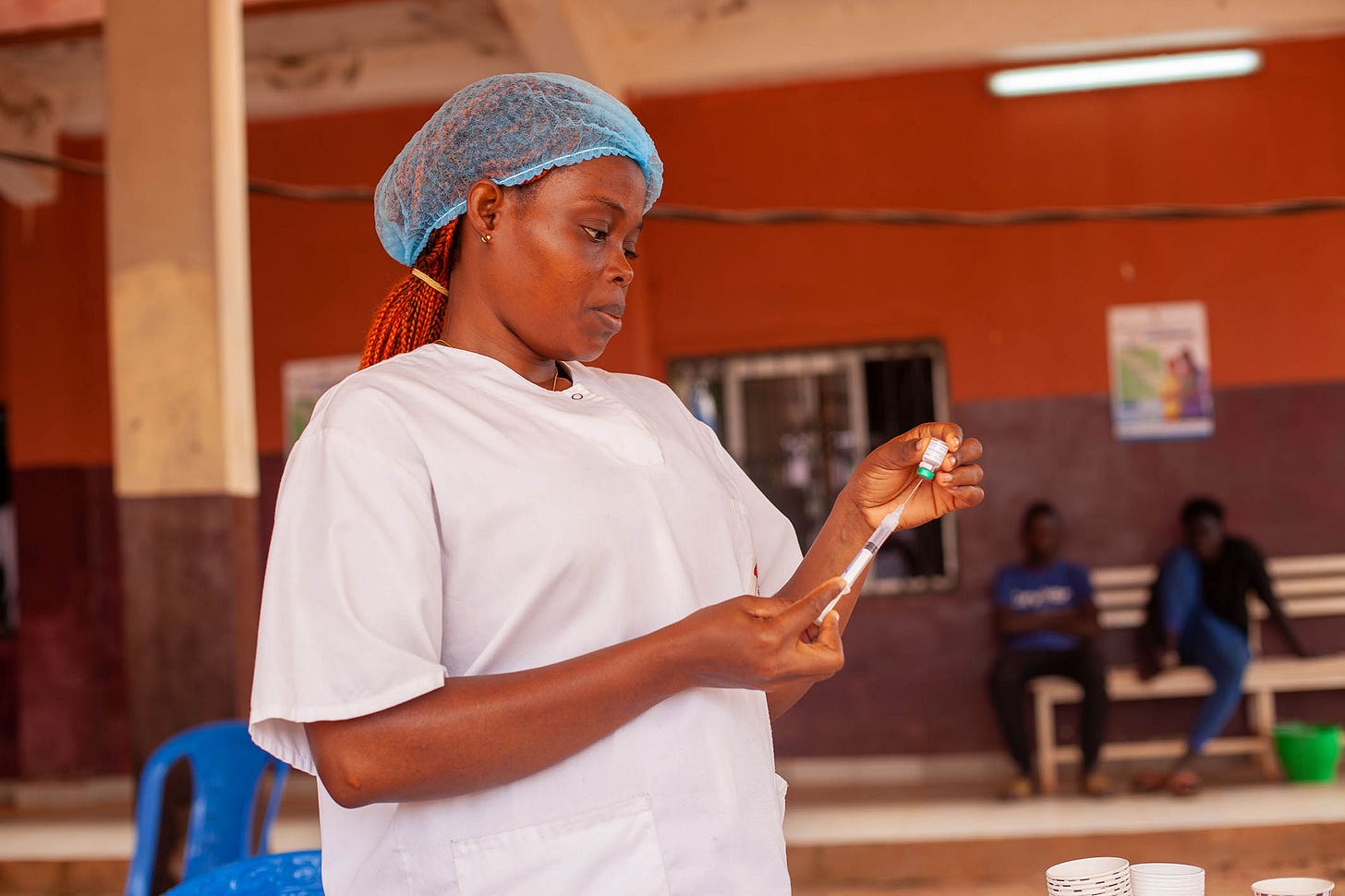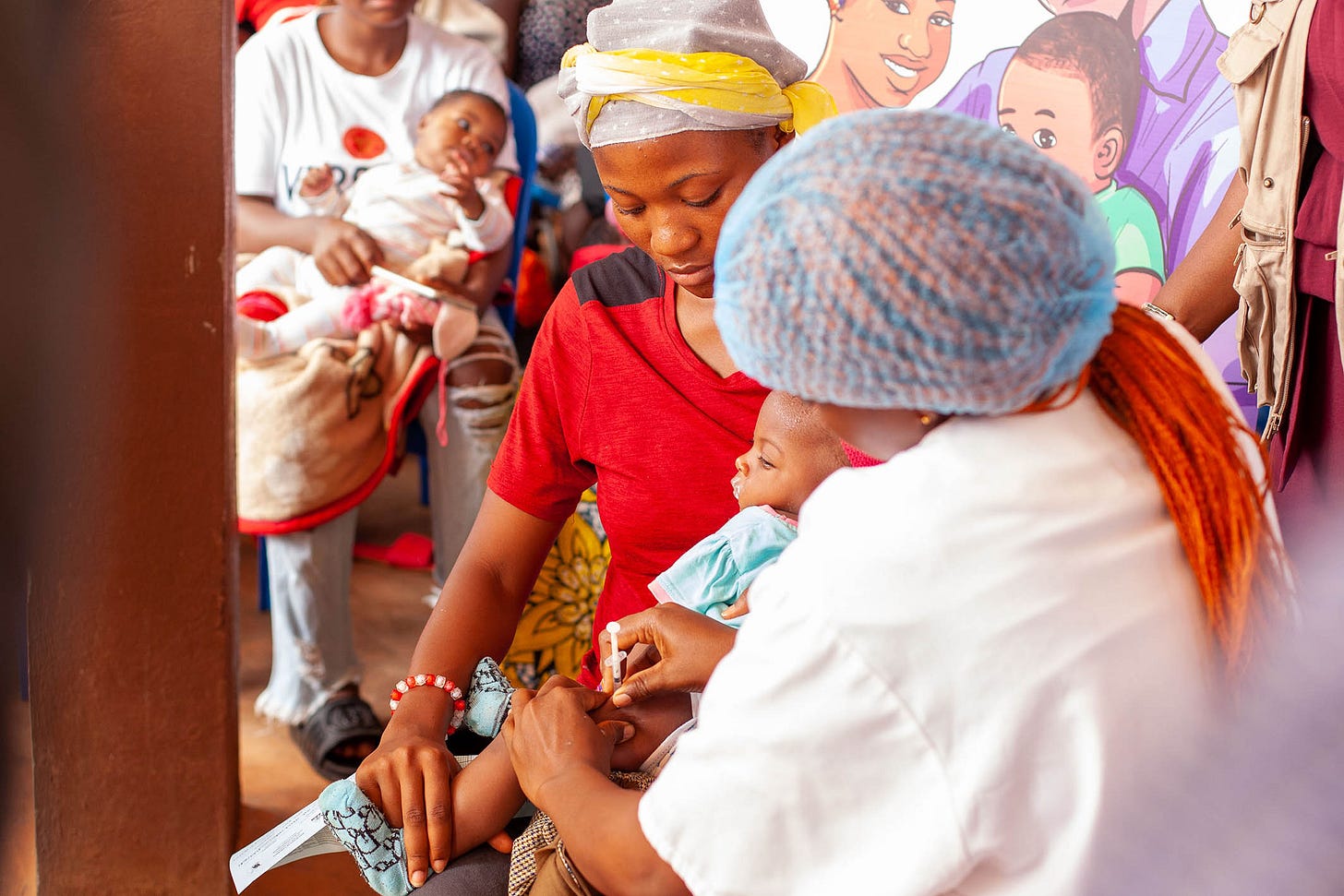Hope and hesitancy as malaria vaccinations begin
A new vaccine could eliminate Africa’s deadliest disease. Cameroon is rolling it out first – and the rest of the continent is watching very, very closely.
Dorcas Ekupe in Maroua and Justina Asishana
Doudou Esther, a mother of six children, was outside the Mouda Health Centre in Cameroon’s Far North region at 7am. She was there to get her baby the new malaria vaccine – a drug that could revolutionise the fight against malaria. “When she’s fine, I’m fine too.
Besides, it’s free. I don’t have to pay a single dime for my children to get the vaccine,” Doudou told The Continent.
Cameroon is the first country in the world to make vaccination for malaria part of routine childhood immunisation.
Twenty other African countries, including Burkina Faso, Sierra Leone, and Benin, plan to introduce the vaccination in 2024, according to Gavi, the global vaccine alliance that is supporting the roll-out of the new drug.
On Monday, in 42 high-risk districts, health authorities began administering the drug to infants under six months of age. In Cameroon, malaria infected 12% of the population between 2015 and 2022, and accounted for 30% of all doctor and health facility visits. Globally, the disease kills about 608,000 people every year. Of these, 500,000 are African children under the age of five.
Dr Matshidiso Moeti, Africa director at the World Health Organisation, called the vaccine roll-out “a game changer in our fight against the disease”.
Clinical trials have proved that the vaccine works, but its success depends too on how well it is adopted on the ground. This cannot be taken for granted.
In Cameroon’s northernmost region, on the edge of the Sahel, where trust in the government is low, not everyone is convinced.
“I won’t allow my daughters to get that vaccine. I didn’t allow them to take the meningitis vaccine and I won’t allow them to take this too,” said Veronique Daipa, a mother of three in the Domayo neighbourhood of Maroua, the Far North Region’s capital.
Others prefer to rely on traditional remedies. “I hardly go to the hospital. I use our local neem tree. God gave them to us in abundance. I don’t see why I should give my children vaccines. I will wait to see if the vaccine has adverse effects on children before I consider it,” said fellow Maroua resident Oumoul Jamilatou.
The vaccine was tested in Burkina Faso, Gabon, Ghana, Kenya, Malawi, Mozambique and Tanzania in large-scale clinical trials and pilot phases, where it was found to be safe and effective. Tikabi Tchoboui heads the Mouda health centre in Moutourwa district, which is offering the new vaccine.
“Children may have a little fever as a side effect but there is no need to worry because they will be fine,” she told anxious parents.
Dr Jean Pierre Kidwang, the head of the malaria control programme in the Far North Region, echoes this perspective, saying that substantive information was shared with community leaders who have “been mobilised to reach out to the local population to educate them”.
He added: “The population needs to be at ease. It is just a normal vaccine like any other.”





